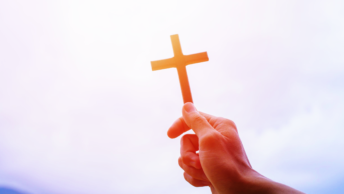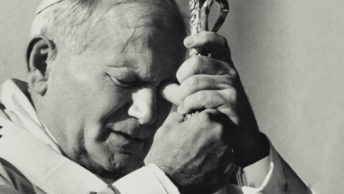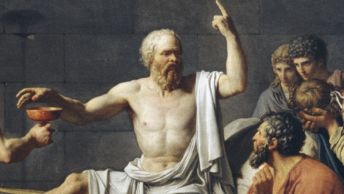
As Americans struggle during these hard times which many economists call a Recession, there are those in industry and education that are starting to use the “D” word – Depression. This is a radical term but is it realistic? Some say yes.
The other day, as I sat in my parish church, several revolutionary thoughts ran through my mind. Could Congress propose to tax the religions of this country? I am sure there are those that think this almost grounds for excommunication, but it seems as if everything else is being taxed.
What if the pastor stood up one Sunday and said, “We are not going to take up a collection this year in the month of May. I want the parishioners of this parish to use the money that they would have given to buy food and clothes. I know how hard it is for many of you today to make ends meet. God will understand.” It would probably be his last day as pastor as a representative of the diocese would have papers Monday morning to remove him from office.
Or what if the bishop stood up one Sunday and said, “I would like to read a letter to you from the Holy Father. His Holiness says “that the regular collection for Peter’s Pence has been cancelled this year. The Vatican is sending a check for $50 million dollars to be distributed to each of the fifty states in accordance with their need. The Vatican has appreciated all that the American Catholics have done for the Church over the years and wants to repay the American Catholic Church during these hard times.” This is radical, I know, but just what if it did happen?
Charity is in jeopardy today. Statistics vary but most people agree that fewer and fewer people practice religion these days. Most of the reasons are not economic but a general decline in moral values in the world today, but money is a necessary part of running a parish or a diocese today. What if the good bishop came out and said that “this is the bottom line, the minimal donation level that we need for our diocese to make ends meet?” I don’t think anyone would fault him but I think a lot of people would agree that religion is a big business requiring substantial funding.
If these economic hard times continue and most people would agree that until jobs return to the economic formula, there will be hard times for a lot of people. We may have to rethink the concept of charity. Again, this sounds revolutionary but I think of it as more of a dose of reality. My wife had a friend of hers that was having difficulty tithing to her Baptist congregation. Given that she could not give the required 10% and still meet her bills, my wife suggested that she reduce her giving but her friend said that would be impossible. “I have to do it.” Well, the bottom line was that my wife loaned her money to make ends meet and the good pastor got his required 10%.
My final revolutionary thought has to do with the Easter and Christmas collections. How is that thousands of Catholics are able to find their way to their local parish and donate money on these two feasts when it is badly needed on the other 50 Sundays of the year? What if an economic cloud opened up on Easter Sunday and a conversion occurred that allowed those Catholics to return to Church the following Sunday?








